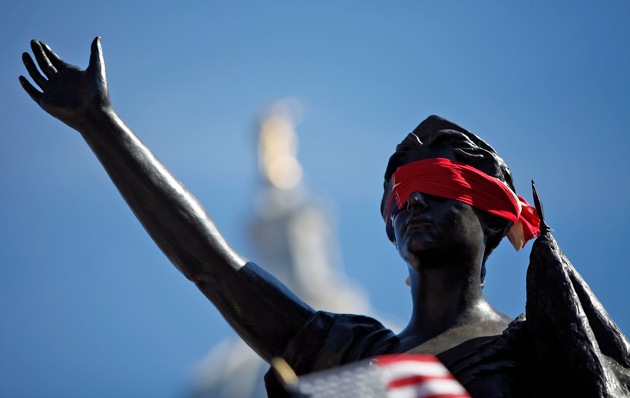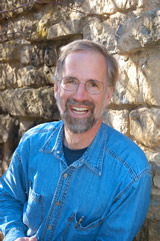Many observers are worried about the latest skirmish in the battle to destroy American higher education, which involves the distinguished environmental historian William Cronon at the University of Wisconsin. As has now been widely reported, on March 17, Stephan Thompson—an operative for the Republican Party of Wisconsin—used the state’s Open Documents law to demand copies of all emails to and from Cronon since January 1 that mention Wisconsin governor Scott Walker or any of a number of other words related to the state’s recent labor debates. Professor Cronon had written critically on his blog Scholar as Citizen of Wisconsin Republicans’ recent efforts to curb the rights of state workers, and Thompson clearly hoped to catch him using his university email to engage in pro-union or pro-Democratic politics, which would violate state law.
As the Cronon controversy has swirled and grown—a conservative group in Michigan has made similar requests for academic email from labor scholars at three universities in that state—some basic points risk being lost. The first is that Cronon himself is the last scholar one would expect to become a flash point for political debate. He’s not the Eastern liberal typically evoked in polemics about the radical professoriate, but a Midwestern “pragmatic centrist,” best known for deeply researched and elegantly written books. Cronon grew up in Wisconsin and chose to return and work there as an adult. Among historians he is chiefly known for his great generosity as a teacher and a colleague.
Indeed, the blog post that started the dispute was not an attack on conservatism but a plea for civility. In it, Cronon examined the American Legislative Exchange Council, a conservative organization that drafts model bills for legislators around the country and which he suggested had helped galvanize Wisconsin’s Republican legislators to attack public service unions. Professor Cronon took characteristic care to describe ALEC as a legitimate political organization. What bothered him was the secrecy with which it operated and the radicalism of the attacks it had fostered on another set of legitimate organizations, the unions. He urged his fellow citizens to work in the open and in a civil manner:
I see my state being ripped apart by the resulting controversies, and it’s hard to believe that Wisconsin is better off as a result. This is not the way citizens or politicians have historically behaved toward each other in this state, and I for one am not happy with the changes in our political culture that seem to be unfolding right now.
The way in which the Republicans chose to reply exemplified the new key of Wisconsin politics—and neatly confirmed Cronon’s thesis.
The tumult and the shouting have also obscured a second crucial point, that Freedom of Information Acts, as Cronon himself states, are precious tools of American democracy. And anyone, as the Republicans claim, has the right to invoke them. But that doesn’t mean that it is always right—ethically right, for example—to do so. Again and again in recent times, Republican operatives have used fragments snatched out of context from emails—as they have used fragments snatched out of context from recorded conversations—to smear scientists, scholars and activists of whom they disapprove. There is every reason to assume that the Wisconsin Republicans are demanding these emails not because they seek to ensure “accountable government” but because they hope to find dirt—or something they can portray as dirt. That’s not the kind of accountability that Freedom of Information Acts were written to promote.
A third point is the most important of all. Since the modern university took shape in the late nineteenth century, professors in many fields have done research and taught—but also offered arguments in the public sphere, using their expertise as scientists or scholars to shed light on issues that affect the general welfare. In some notorious cases, university authorities, official or unofficial, denounced these activities. Mrs. Leland Stanford Jr., for example, insisted in 1901 that the sociologist Edward Ross be dismissed from Stanford for taking Progressive stands on various issues. In 1894, by contrast, the Wisconsin State Board of Regents refused to discipline or dismiss the University of Wisconsin economist Richard Ely, whose support for the rights of workers had offended some. In words of which the university is justly proud, the regents declared that academic comment—even polemical comment—formed part of the necessary process of “sifting and winnowing” by which public debate should be conducted.
More recently, academics have gone public to reveal the disappearance of the ozone layer and the rise of global temperatures, to denounce the commercialization of Civil War battlefields and to criticize—and to support—the Iraq War. Doing this properly isn’t easy. Scholars and scientists, of course, have all the same rights as other citizens: they can enter debates, join political organizations and work for campaigns. But when they enter the public sphere in their special capacity as acknowledged professional experts, they bear special responsibilities: they’re not acting as ordinary citizens, nor as pundits who are ready to pronounce on anything. They should be real experts on the problems they attack. They should acknowledge their own fallibility and the provisional character of the knowledge they rely on. They should expect contradiction, both from other experts and from those whose interests they cross, and maintain civility amid the eldritch yips and guttural growls of American public debate. And the conclusions they put forward must be the ones that their expertise dictates, whether or not they find these pleasing.
Advertisement
It’s a little bit like being a Raymond Chandler detective. You go out into the mean streets, armed only with knowledge and determination, knowing that you can easily be wrong, and grimly aware that your only reward for being right may be a blow on the head. It’s a great, quixotic part of the vocation of science and scholarship. That’s why universities have come to agree that honest public interventions are a legitimate part of academic work, and why they do their best to protect those who engage in them from personal and political attack.
William Cronon’s intervention met these criteria, as those who know him and his work would expect. He knew ALEC and its work from previous encounters, since it has regularly opposed legislation to protect the environment. He offered his readers not polemic but instruction: a “study guide,” in the form of an outline of some of ALEC’s activities and a multitude of links for those who wanted to know more about them. And he did so, as he made clear, in the service not of one party but of the political traditions of his state.
The University of Wisconsin—the official “record holder” responsible for producing Cronon’s emails—has now answered Thompson’s request. The university handed over some emails, but held back those related to students, professional organizations and personnel matters, as well as “Intellectual communications among scholars.” And it has made clear that the attack on Cronon was baseless. John Dowling, the university attorney who wrote the reply to Thompson, offers a clear verdict: “the emails that we have reviewed contain absolutely no evidence of political motivation, contact from individuals outside normal academic channels or inappropriate conduct on the part of Professor Cronon. The university finds his conduct, as evidenced in the emails, beyond reproach in every respect.”
Biddy Martin, the University chancellor, has issued a separate statement. She carefully explains the university’s response. She defends the faculty’s need for privacy in communication. And she urges them to “Continue to ask difficult questions, explore unpopular lines of thought and exercise your academic freedom, regardless of your point of view. As always, we will take our cue from the bronze plaque on the walls of Bascom Hall. It calls for the ‘continual and fearless sifting and winnowing’ of ideas. It is our tradition, our defining value, and the way to a better society.” It’s wonderful to see a university stand up for its core values in this way, and to hear such straight talk from a university leader.
One challenge to academic freedom and open public debate has been beaten back. But others are coming. Let’s hope that other universities emulate the model of transparency, firmness and civility that the University of Wisconsin—and Cronon—have created.




